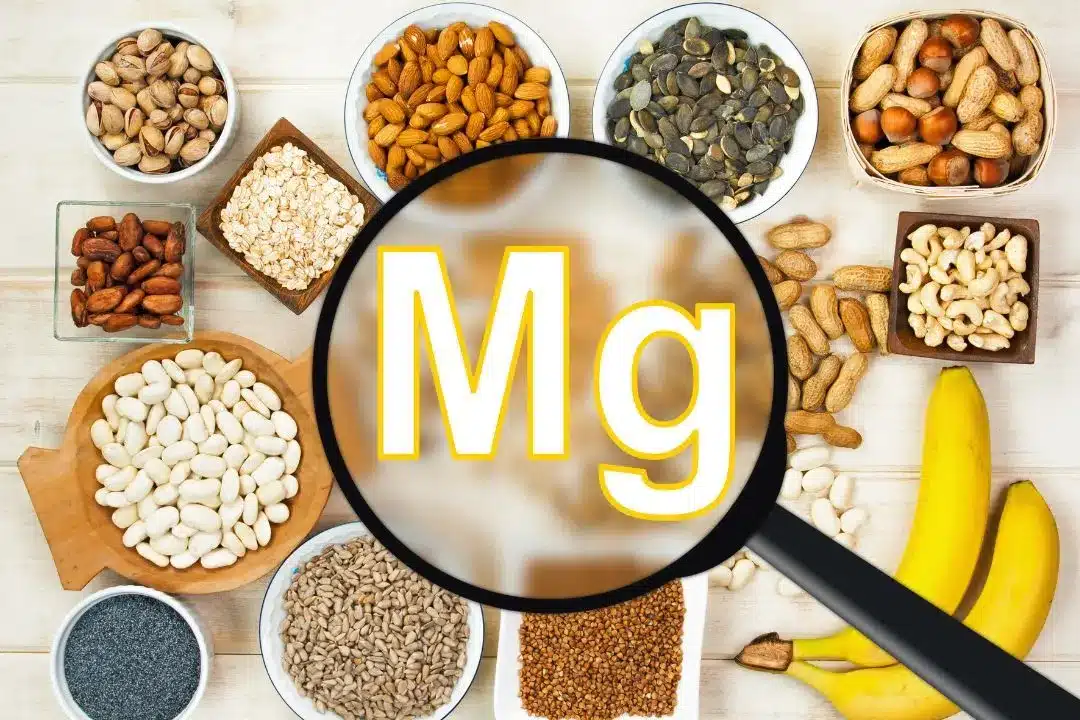Eating fiber and drinking more water can have a positive impact on your colon, blood…
Magnesium: The Most Important Mineral You’re Not Getting Enough Of

Did you know that magnesium is the most important mineral we are not getting enough of? It is estimated that up to 80% of Americans are deficient in magnesium. This is a huge problem, as magnesium plays a vital role in our health. Without it, our bodies cannot function properly.
In this blog post, we will discuss reasons most of us are deficient in magnesium, understand more about its important function in the body, and common signs and symptoms of deficiency.
One of the primary reasons why so many people are low in magnesium is due to modern farming practices. Most conventional farms use fertilizers that lack magnesium, and soils that were previously mineral-rich have been depleted over time. To make matters worse, most processed foods are also devoid of this important mineral.
Unfortunately, in recent years we have also seen an ever-growing increase in digestive issues. A healthy digestive function is very important for the proper absorption and utilization of magnesium in the body. Diseases such as celiac disease, Crohn’s disease, and other intestinal disorders not only in
terfere with magnesium absorption they also decrease your natural ability to extract magnesium naturally from your diet.
Certain commonly prescribed medications can also contribute to magnesium deficiency. This includes drugs such as proton pump inhibitors, diuretics, and some antibiotics. All of these can prevent the body from absorbing enough magnesium from food sources or further deplete stores that are already low.
Other factors that may contribute to magnesium deficiency include stress, alcohol consumption, and excessive sweating.
Magnesium is an essential mineral that plays a role in hundreds of biochemical reactions within the body. It is involved with energy production, muscle and nerve function, blood pressure regulation, glucose metabolism, DNA/RNA synthesis, and more. It helps to maintain healthy bones and teeth by activating vitamin D in the kidneys. Magnesium also works together with calcium and potassium to regulate the body’s heartbeat. Magnesium has antioxidant properties that can help prevent damage caused by free radicals, as well as reduce inflammation throughout the body.
A magnesium deficiency can cause a variety of symptoms. These include fatigue, muscle cramps, and spasms, weakness, irritability, anxiety and depression, insomnia, headaches, and migraines. Other signs of a potential deficiency include constipation, frequent urination with dark-colored urine, tingling or numbness in the hands and feet, and a loss of appetite.
If you think you may be deficient in magnesium, it is important to speak to your doctor. A simple blood test can accurately determine if your levels are low and if supplementation is necessary. Additionally, eating magnesium-rich foods such as spinach, Swiss chard, pumpkin seeds, dark chocolate, and avocados can help improve your magnesium levels. Taking a quality magnesium supplement is also an effective way to increase your levels of magnesium.
In summary, magnesium is an essential mineral that plays a vital role in our health and well-being. Most of us are deficient in this important mineral, so it’s important to be aware of the potential signs and symptoms of deficiency. Eating a healthy diet rich in magnesium, taking a quality supplement, and speaking with your doctor can help ensure you get the magnesium your body needs to thrive. It’s essential to pay attention to magnesium levels and ensure you’re getting enough of this important mineral!
Here’s to better health and well-being, thanks to magnesium!

